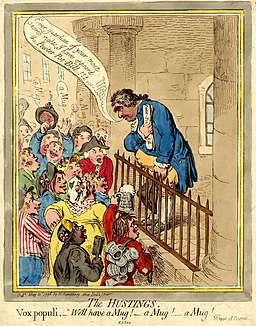
“The trial of former Clinton campaign attorney Michael Sussmann crossed a critical threshold Friday (May 20),” Jonathan Turley writes at The Hill, “when a key witness uttered the name ‘Hillary Clinton’ in conjunction with a plan to spread the false Alfa Bank Russian collusion claim before the 2016 presidential election.”
The witness: Robby Mook, who managed Clinton’s failed 2016 presidential campaign.
The revelation: According to Mook, Clinton personally approved the initial disinformation campaign that eventually became “Russiagate,” an attempt to explain/excuse Clinton’s poor performance and ultimate loss, and Donald Trump’s victory, as a function of Russian “meddling” in the election.
Sussmann is on trial for lying to the FBI — namely, misrepresenting himself as an independent actor rather than a Clinton campaign operative when he brought faked-up “evidence” of a communications channel running between the Trump campaign and Russia’s Alfa Bank to the bureau’s attention in 2016.
It was clear from the beginning that there wasn’t much substance to Russiagate. Its wild claims were held together with lots of duct tape and chewing gum, falling apart under even cursory examination, and the whole thing was finally revealed as a Seinfeld-like “show about nothing” in special counsel Robert Mueller’s 2019 report.
It was also clear from the beginning that it was a “pot calling the kettle black” situation, insofar as the Clinton campaign itself “colluded” with Russian sources to get “dirt” on Trump, even as it accused him of doing the same to get “dirt” on her.
Those sources — tapped by former MI6 Russia Desk head Christopher Steele, on behalf of a firm (Fusion GPS) acting as a Clinton campaign “deniability” cut-out — provided the content of the “Steele Dossier” the Clinton campaign later used to push the Russiagate scam.
It’s unlikely that Clinton will ever face criminal penalties or other severe consequences — beyond of course, losing a presidential election and discrediting herself in ways that preclude a comeback — for her leading role in this substanceless melodrama.
The best we can hope for is that history will treat her as very much the political twin of Donald Trump — a con artist, a sore loser, and a Big Liar.
Thomas L. Knapp (Twitter: @thomaslknapp) is director and senior news analyst at the William Lloyd Garrison Center for Libertarian Advocacy Journalism (thegarrisoncenter.org). He lives and works in north central Florida.
PUBLICATION/CITATION HISTORY


